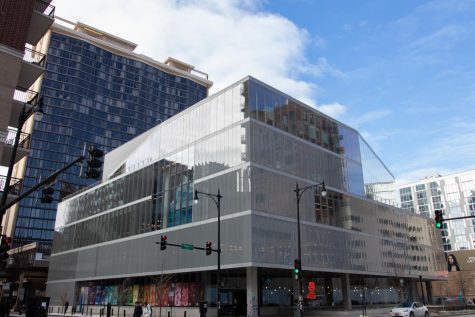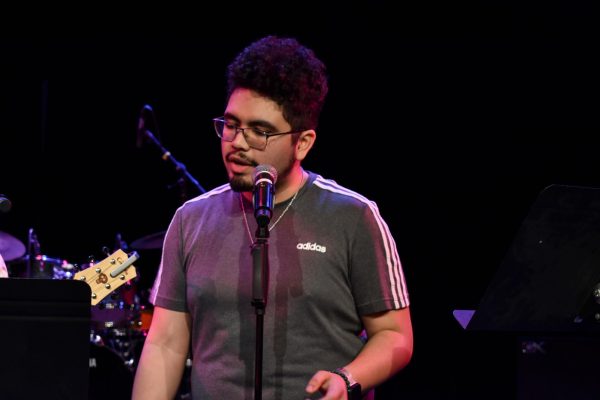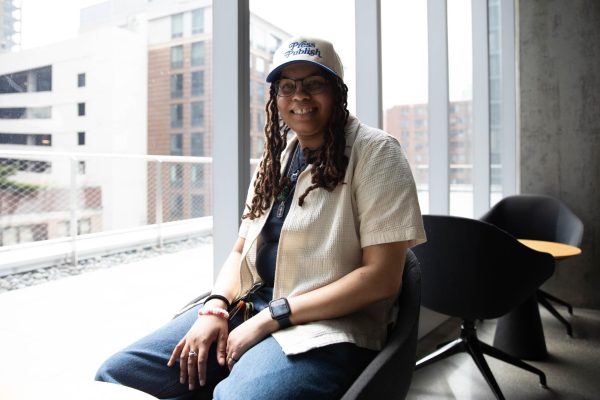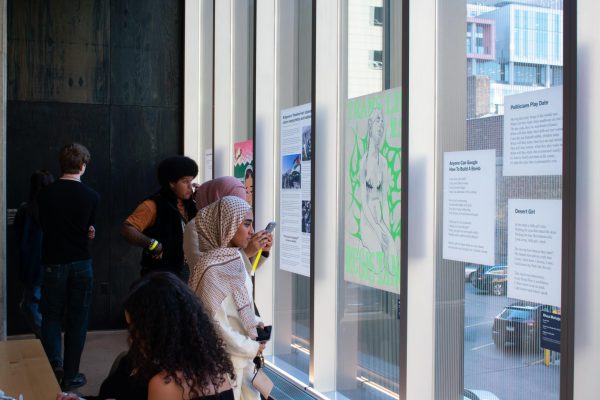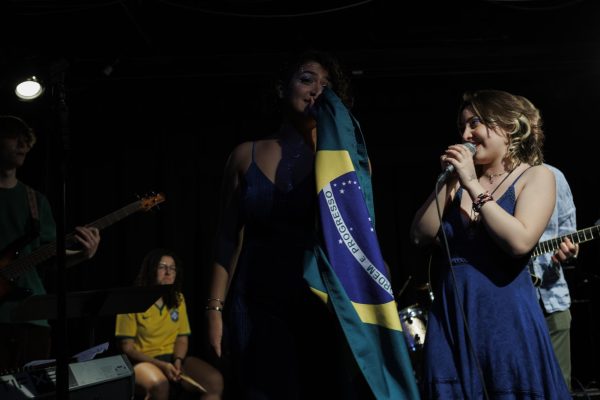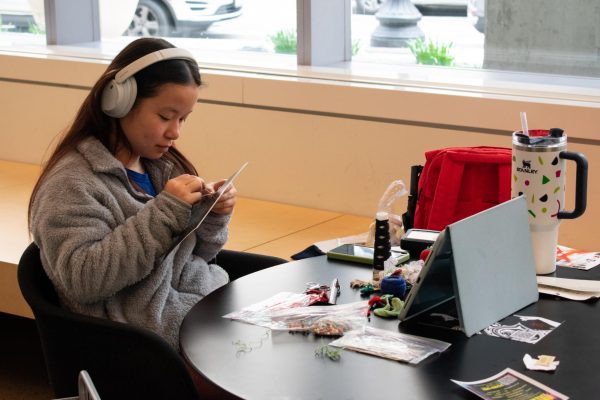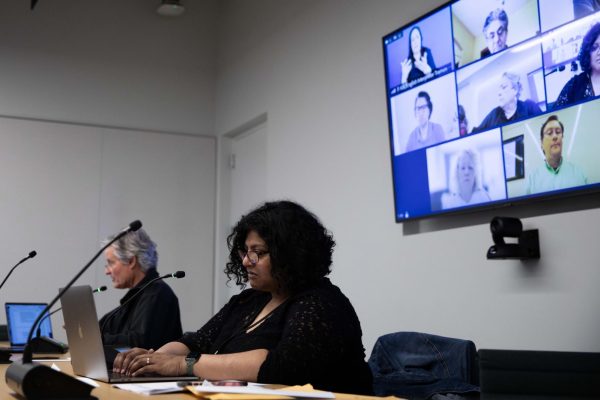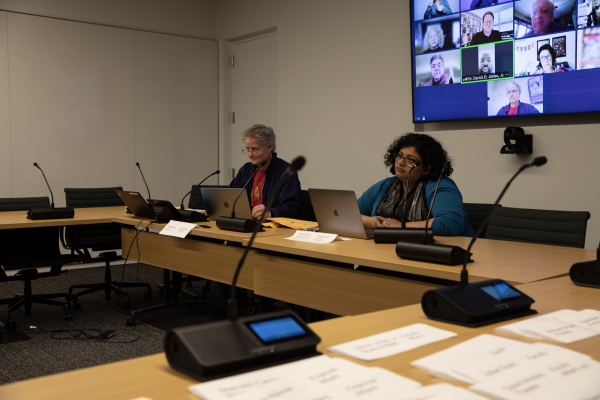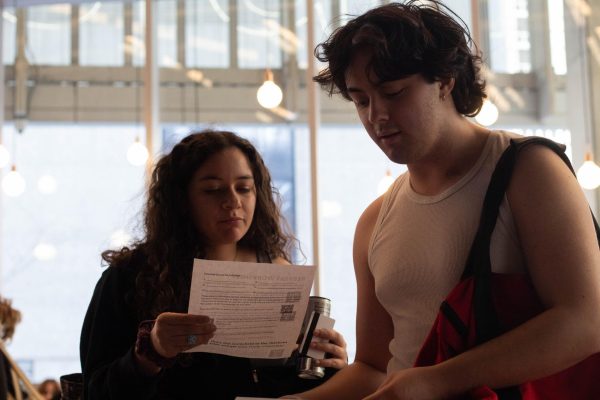International Students Organization finally official
April 27, 2009
Adriana Mendez moved to Chicago from Venezuela, her native country, more than two years ago to study at Columbia. Mendez came to Chicago to learn English and because her parents wanted a better life and education for her. Like many immigrants, Mendez suffered from an identity crisis upon arrival-not quite belonging here, but not quite belonging in her own country, either.
Mendez is one of the 154 international students studying at Columbia. Coming from 41 different countries around the world, some of these students are drawn to the International Students Organization, which was set up to give international students support, a chance to advocate their culture and to help integrate themselves into the student body.
In the past year, the organization has seen a significant increase in membership. With four to five active members in the organization last year, the group now has more than 30 and is finally recognized as an official organization by the Student Organization Council.
“At the beginning of this year, Scott Pharp, former coordinator of Multicultural Affairs, came to speak to us, and after that we decided we were going to make the organization better,” said Avery Ju, president of ISO. “After we spoke to him it triggered a realization that if we work together we can make it better, and we started to recruit people and organize events.”
Members meet Friday evenings on the fourth floor of the 618 Building, 618 S. Michigan Ave., in a lounge with flat-screen TVs and sofas. It’s designed to be a “home away from home” for students who may be thousands of miles from their families.
“It is an amazing place here; it is a very healthy environment,” said Renato Volpi, an international student from Brazil. “All the people I have met here at Columbia are because of the ISO.”
There are now 154 international students at Columbia, but enrollment barely increased from 129 in fall 2007 to 134 in fall 2008, just one percent of undergraduates.
But this year has marked many firsts for the organization, which hosted and supported many big events on campus.
In January, the World Enigma event showcased the work and talents of international students, including photography, paintings and music. The group also organized and hosted a screening and discussion of the film Darfur Now in March to bring attention to the conflict in Sudan. The event helped raise funds for the organization, something that has never been done previously, said Gigi Posejpal, assistant dean of International Student Affairs.
With the diversity of cultures and histories in the ISO, members can relate to each other because they are all in similar situations. Coming from different backgrounds, they understand how they can be perceived differently because of where they are from. Their uniqueness is part of what makes the group what it is, an organization where no two people are the same. But it can also leave them open to discrimination.
“Every individual situation is different,” Posejpal said. “On a whole, we have not had many issues of discrimination, but any situations which have arisen have been mostly on the part of the domestic student and their ignorance of other cultures.”
For Mendez, the main difference between Chicago and her native Venezuela is safety, as she said she feels much safer here. The best thing about the ISO for Mendez has been the friends she has made, who can appreciate her because they are in the same circumstances, she said.
“Some people here know little about countries that are not their own. They don’t care about other cultures,” Mendez said. “But most of the people I have met here are really nice and treat me as an equal.”
The ISO helps students who have come from countries abroad, but also Americans who have been raised overseas or who may have a green card, but are still caught between two cultures. The ISO tries to unite international students with the non-international and dissolve any disconnects.
“I want people to know that just because we’re from different countries doesn’t mean we have to be isolated or want to be. We have a lot in common with Americans, [and] we also have differences,” Ju said. “But the most important [thing] we want to do is to come together and have fun. I mean in what other organization can you come and hang out over a slice of pizza and find out what’s going on in Ireland or Brazil or Venezuela?”



